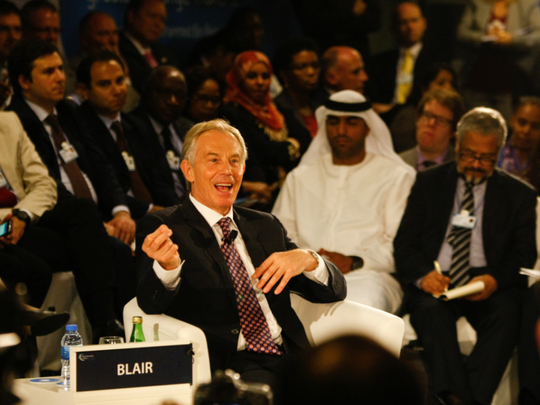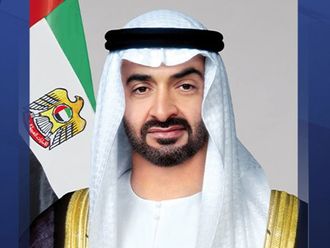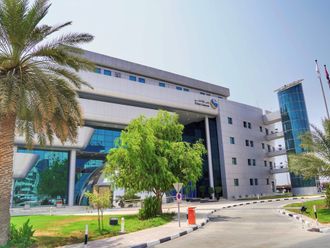
Dubai: Former and current world leaders who attended the Global Education and Skill Forum on Sunday shared their views on the role of education in the war against terror.
Several leaders attended the first day of the forum, a two-day event that aims to bring together leaders from the public, private and social sectors to address the education sector’s greatest challenges.
The former Prime Minister of the UK, Tony Blair who spoke in a session titled ‘The way forward — what should be the sustainable development agenda for education’ said he believed that when it comes to extremism, teaching tolerance inside and outside the class is key to fighting it.
“The more educated we become, the better off we are and the more potential for conflict is reduced. But unfortunately, when we talk about education, we are talking about education in classrooms only. There are many other factors too. They can be influenced online and by other factors outside school as well.
Blair said it is important that the education of young people is one that teaches you to have an open minded view of the world.
Also commenting on terrorism, the former President of Nigeria Olusegun Obasanjo who talked about the kidnapping of nearly 300 girls in Nigeria by Islamist extremists Boko Haram also said education can help in fighting such groups.
“Attacking schools is a new phenomenon. Thirty years ago it wasn’t there, schools were considered a holy place, the school was respected and so were the teachers. It is a new development and we should attend to the issue immediately,” the former president said at a press conference held during the event.
Obasanjo said the government did not see Boko Haram as a threat, they did not see it as an issue of security, instead they saw it as an issue manufactured against the president to prevent him from having a second term.
“The current Nigerian president’s reaction to the kidnapping was to say that it was not true. If it is not true, you don’t have to deal with them. For 18 days he did not contact the girls’ provinces leaders to take action.”
Obasanjo said he believed that if they the government reacted differently many of the girls could have been saved.
“I met with three girls who managed to escape from Boko Haram, who told me about their traumatic experience and each one of them said they wanted to go to school. We appealed to NGOs and five of the girls are now studying in the United States.”
Obasanjo said policymakers have to counter terrorism believing that there is no religion that tells people to kill. There must be moral training, people should be taught tolerance, acceptance and diversity.
The former president believes that Boko Haram should be dealt with in two ways. The first is through military and the second is education.
The former Prime Minister of Tunisia, Hamadi Jebali told Gulf News during the event that many people have resorted to terrorism even though they are educated.
“There are many extremist groups in Europe but they did not expand to take over whole countries like the case in the Middle East and African countries. They tried but these European countries were educated and democratic so they simply melted away. Meanwhile, countries like Middle East provide a fertile ground for terrorism to grow,”
Jebali believes that though education is important, governments must work on fixing their political, economic and environmental state. “This might take a long time and so I expect groups like Daesh and Taliban to stay for a long time.”
The President of Rwanda, Paul Kagame who spoke at one of the sessions recalled his humble beginnings as a young refugee child to give an example of the importance of teachers’ role.
“We did not have access to paper so we had to write on our thighs using grass. We had poor resources and our teachers were not even paid but they still went to our parents to convince them about the importance of education and attending.”
Rwanda has come a long as the president said today as enrolment in primary education is now at 97 per cent.












